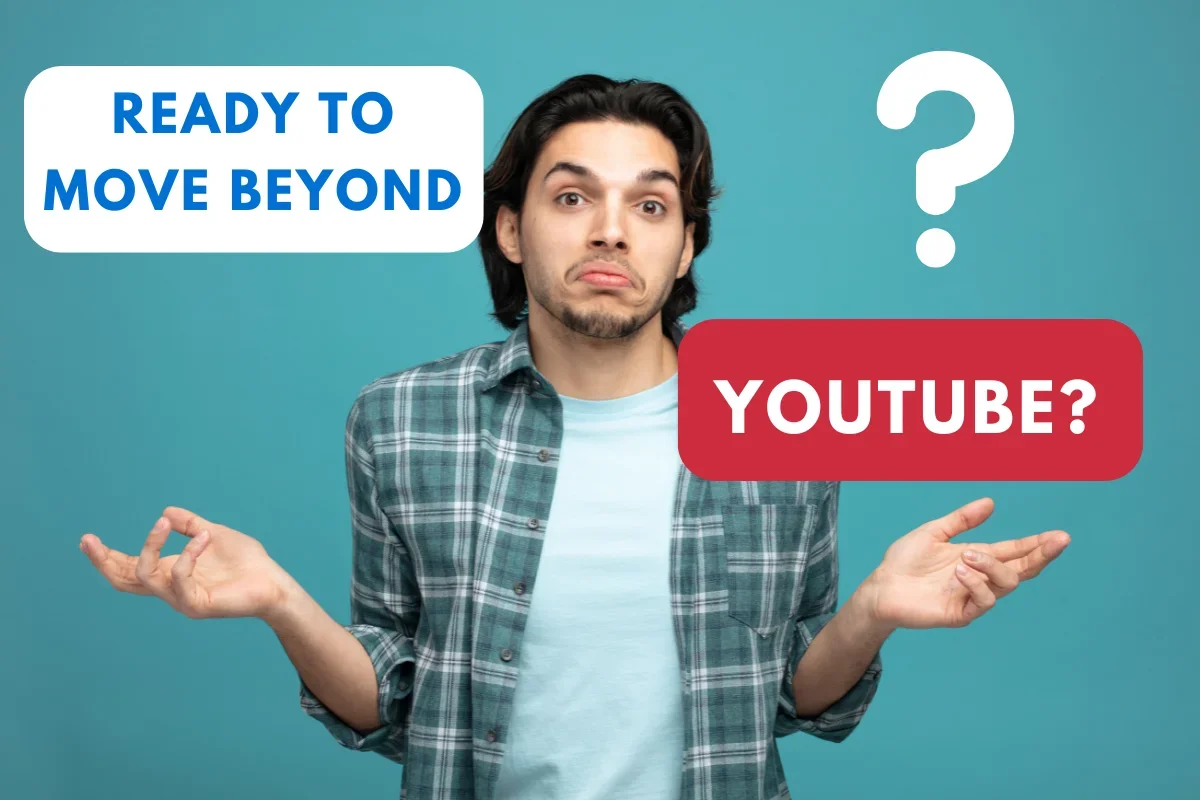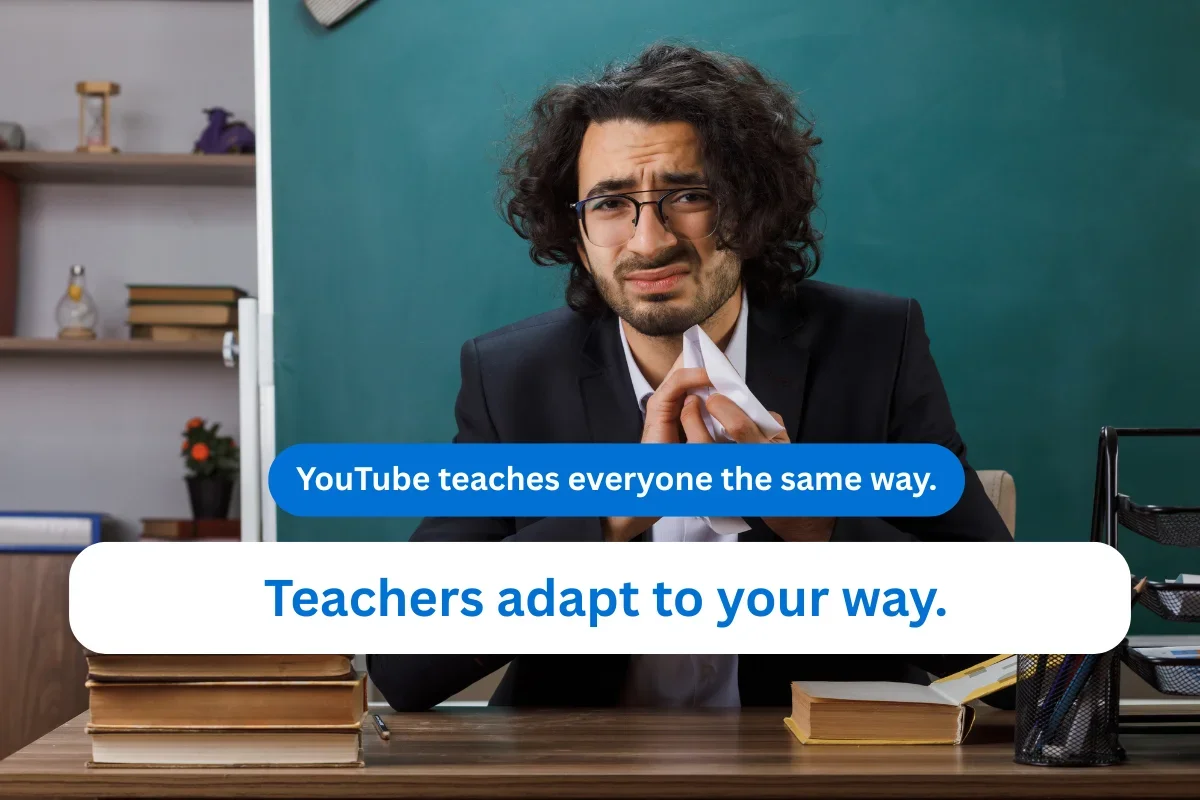Why Music Lessons Are Better Than Learning from YouTube
I get it. YouTube is tempting. Thousands of free tutorials, all available 24/7. Want to learn music theory? There’s a video for that. Need piano lessons or guitar chords? Just search.
But here’s the truth: YouTube can only take you so far. If you’re serious about improving, nothing replaces real music lessons with a music instructor who understands your strengths, weaknesses, and goals.
Let’s break down exactly why.
1. Personalized Feedback Beats Guesswork
On YouTube, you can watch someone demonstrate finger positions or breathing techniques, but there’s no one to tell you if you’re doing it wrong. With private lessons, you get real-time feedback tailored to you.
Example: I once had a music student who learned guitar only from YouTube. He played for two years but still struggled with buzzing strings. Within three music instruction sessions, we fixed his hand position, something he didn’t even know was a problem.
Connecting point: Tutorials show you what to do; teachers show you how to do it right.
2. Structured Learning Saves Time
YouTube is a rabbit hole. One video leads to another, and before you know it, you’ve spent an hour browsing without actually learning. Music lessons with a music teacher follow a structured path, building skills in the right order.
Tip: A good instructor will balance technique, theory, and fun songs so you don’t waste months trying to piece it together yourself.
Connecting point: YouTube is scattered. Private lessons are streamlined.
3. Accountability Keeps You Motivated
Here’s the hard truth: most people quit when learning alone. No one’s there to push you through the tough parts. A music instructor holds you accountable, checks your progress, and keeps you motivated when practice gets boring.
Example: A piano lessons student of mine once said, “If I didn’t have weekly sessions, I would’ve quit months ago.” That accountability made all the difference.
Connecting point: With a teacher, skipping practice feels like letting someone down, and that’s a powerful motivator.
4. Teachers Adapt to Your Learning Style
Everyone learns differently. Some are visual learners, others need to hear or physically try it. YouTube videos are one-size-fits-all. In contrast, music teachers adapt lessons vs forcing you to fit a generic method.
Example: One of my vocal students hated reading notation but loved playing by ear. We built her private lessons around listening exercises instead of sheet music, and she thrived.
Connecting point: Teachers shape music instruction around you. YouTube expects you to fit the video.
5. Better Technique Prevents Bad Habits
Bad habits are sneaky. Maybe you’re pressing too hard on the strings, or your wrist angle is off. YouTube won’t catch that. A trained music teacher will.
Real-life case: A drummer I taught had wrist pain from practicing with a bad grip he learned online. We fixed it in two weeks. Without private lessons, that habit could’ve led to injury.
Connecting point: Technique matters. Lessons protect you from long-term frustration and sometimes even physical harm.
6. Progress Is Faster with Real Lessons
Think about it. YouTube shows you tricks, but online music lessons or in-person sessions give you feedback + structure + accountability. That combo speeds up progress like nothing else.
👉 Tip: Track your growth. Students with music instructors often master basics in months, while self-taught learners can take years.
Connecting point: If you want to play songs confidently, private lessons vs YouTube? Lessons win every time.
7. Human Connection Inspires Creativity
Music is more than notes. It’s expression, connection, and creativity. Having a real music instructor gives you encouragement and inspiration you won’t get from video lessons.
Example: During sessions, teachers share stories, demonstrate live, and sometimes even jam with you. That human energy sparks creativity you can’t download.
Connecting point: Music is human. Lessons keep it alive and personal.
8. YouTube Works Best with Lessons
Don’t get me wrong, YouTube isn’t useless. It’s a great supplement for quick tutorials, song breakdowns, and online music practice tracks. But it works best when combined with music lessons, not as a replacement.
👉 Tip: Use YouTube to explore songs you love, then bring them to your teacher. They’ll show you how to play them correctly and improve faster.
Connecting point: Think of YouTube as a sidekick, not the main teacher.
Final Thoughts: Invest in Real Lessons
YouTube can spark interest. It can even teach you a few tricks. But if you want real progress, better focus, and a skill that lasts a lifetime, music lessons are the way to go.Online music lessons make it easier than ever to connect with experienced instructors anywhere, and the benefits of online music include flexibility, guidance, and structure, all without losing the human touch.
Lessons give you what YouTube can’t: structure, feedback, accountability, and real connection. That’s what transforms curiosity into lifelong musicianship.
So if you’ve been stuck in YouTube’s cycle, maybe it’s time to take the next step. Your future self (and your music) will thank you.
Ready to Go Beyond YouTube?
Take the next step with Zoom Twin Cities. Our experienced music instructors offer engaging private lessons and online music lessons designed for every music student, from beginners to advanced players.
Whether you’re into piano lessons, guitar, or voice, we’ll help you learn music the right way with real guidance and motivation.
👉 Sign up today and experience the real benefits of online music instruction with a teacher who’s passionate about your progress.



